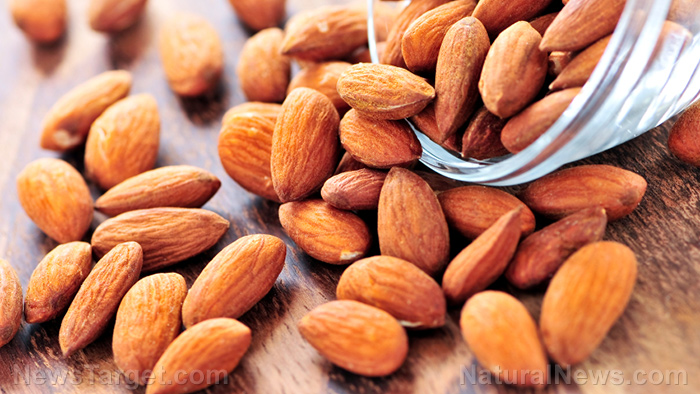Keeping your gut flora healthy is the key to maintaining good health
07/07/2020 / By Evangelyn Rodriguez

Keeping a well-balanced gut microbial composition is key to controlling hunger, managing weight and maintaining good overall health, according to a recent study.
Chinese researchers discussed the concept behind the gut flora-centric theory (GFCT), a new hypothesis that focuses on the biological motivation of why humans need to eat food every day.
The GFCT was born from the experience of one of the researchers, who, after several attempts to control his body weight, discovered that consuming prebiotic foods helped reduce his hunger and, consequently, his food intake.
“I gradually discovered that my hunger sensation seemed to originate from the gut flora, because when I ingest special foods, such as plant polysaccharides and dietary fibers, to feed the gut flora but provided no food for my own body through three meals a day, my hunger sensation gradually diminished and disappeared,” the author, who claims to be an obese man, shared in the study.
Besides suppressing his appetite and reducing his weight, he also reported that keeping his gut microbiota healthy significantly improved his diabetes and severe fatty liver.
Following this discovery, several successful clinical trials have confirmed that signals that encourage feeding originate from the gut microbiota and not from the cerebral feeding center, which is controlled by neural circuits of motivation that dictate food intake.
This led the researchers to write a review discussing the potential application of the GFCT in food science for the maintenance of human wellness. Their review was published in the journal Food Science and Human Wellness.
GFCT and human health
Human wellness is the ultimate goal of efforts to improve human life, and functional foods enable humans to achieve this kind of wellness. However, overeating leads to obesity and diabetes, both of which negatively impacts human health.
Because of these chronic diseases, dietary restriction and proper exercise became highly recommended for the purpose of maintaining good health. The effects of different foods on human health greatly varies, hence nutritionists promote the diversification of diet to keep the body healthy.
For the prevention of diabetic mellitus, special foods allowed by healthy diets, such as the ketogenic diet, the low-carb diet and the low-calorie diet, are attracting attention.
In connection to this, the researchers propose the GFCT, which suggests that hunger is influenced by the gut microbiota. This hypothesis has been demonstrated in multiple studies through the use of special food components, such as plant polysaccharides and dietary fibers.
The response of the gut microbiota and the body, as a whole, to these nutrients demonstrates the importance of gut microbial communities for improving human wellness. The gut microbiota may be an essential factor for the regulation of hunger and for proper nutrition.
The researchers believe that modern techniques, such as 16S rRNA sequencing and mass spectrometry, can be used to identify beneficial gut microorganisms, which can guide scientists to a new era of human wellness that’s based on gut microbiota wellness.
Keeping the gut microbiota healthy
Trillions of microorganisms reside in the human gut. These include bacteria, fungi and even viruses, some of which contribute to human health by producing beneficial products. These microbes also keep other microbes in check — microbes that, if allowed to increase in number, can cause serious health problems. This is why keeping the ratio between good and bad bacteria balanced is very important for maintaining good gut health.
To keep your gut microbiota healthy, here are some bona fide science-backed tips: (h/t to MedicalNewsToday.com)
- Take probiotic supplements or eat probiotic foods (e.g., fermented foods like kimchi, sauerkraut and yogurt)
- Add foods rich in prebiotic fiber to your diet (e.g., high-fiber foods like fruits, vegetables and whole grains)
- Reduce your sugar intake and avoid artificial sweeteners
- Manage your stress levels
- Avoid taking antibiotics
- Exercise regularly
- Develop healthy sleep habits
- Avoid too much exposure to cleaning products (e.g., disinfectants)
- Quit smoking
- Follow a plant-based diet
The influence of the gut microbiota extends outside of the digestive system, according to recent studies. The state of a person’s gut microbiota also affects his immunity, endocrine functions, body weight, mental health, brain functions and risk of developing chronic disease. To improve, maintain or restore your overall health, start making the right dietary and lifestyle changes to support a healthy gut microflora.
Sources include:
Tagged Under: #nutrition, dietary fiber, digestion, digestive health, disease prevention, food science, functional food, gut microbiota, health science, healthy diet, nutrients, phytonutrients, research
RECENT NEWS & ARTICLES
COPYRIGHT © 2017 NUTRIENTS NEWS



















